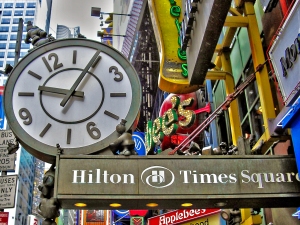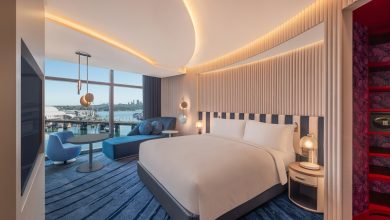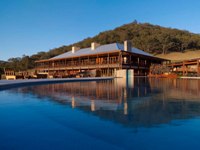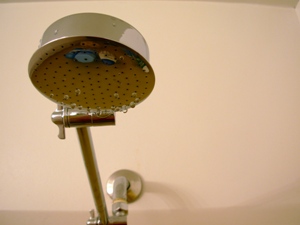
Hilton Announces Sustainability Results
Hilton Worldwide has announced the 2011 results of LightStay, the company’s proprietary sustainability measurement system.
Overall, the program has been a tremendous success with over $147 million in cumulative savings from efficiency projected for hotels reporting through LightStay. Additionally, Hilton Worldwide has achieved its five-year goal to reduce total waste output by 20%, a full two years ahead of schedule.
The company also reports it is on track to reduce energy consumption and CO2 emissions by 20%, and water consumption by 10%. Since the introduction of LightStay, the company has reduced its:
• carbon output by 10.9%;
• waste output by 23.3%;
• energy use by 9.7%; and
• water use by 7.5%.
“Sustainability is an increasing focus across all our brands and is critical to the operations of our business,” said Christopher J Nassetta, president and chief executive officer, Hilton Worldwide. “LightStay provides us with a global platform to respond to the challenges of managing natural resource constraints, and Hilton Worldwide is dedicated to empowering our property owners and operators with tools that improve economic and sustainability performance at all levels of our company.”
As the first major multi-brand hospitality company to make sustainability measurement a brand standard and require performance against sustainability goals, Hilton Worldwide completed the adoption of LightStay across the company’s more than 3900 properties in 91 countries in 2011 and is now tracking more than 4,180,000m² of build space within the system – an amount greater than all the office spaces in New York City and ten times all hotel rooms in Las Vegas. The company also recently integrated the Hotel Carbon Measurement Initiative 1.0 methodology spearheaded by the International Tourism Partnership and World Travel & Tourism Council into LightStay and can be applied to any of its properties worldwide if requested. As part of the LightStay Meeting Calculator, Hilton Worldwide also can provide customers with real-time data on food, travel and operational practices for any its properties.
 Every brand and hotel globally is required by brand standards to measure and make continual improvements to their overall sustainability results as part of LightStay, and, to support these efforts, the system includes a ‘social network’ dashboard that allows properties from around the world to ‘neighbour’ one another and share information, dialogue on a topic or compare respective performance. To date, Hilton Worldwide has nearly 2000 ‘neighbours’ in LightStay and more than 5000 improvement projects that highlight different approaches to common sustainability challenges.
Every brand and hotel globally is required by brand standards to measure and make continual improvements to their overall sustainability results as part of LightStay, and, to support these efforts, the system includes a ‘social network’ dashboard that allows properties from around the world to ‘neighbour’ one another and share information, dialogue on a topic or compare respective performance. To date, Hilton Worldwide has nearly 2000 ‘neighbours’ in LightStay and more than 5000 improvement projects that highlight different approaches to common sustainability challenges.
For example, Hilton Americas – Houston Texas converted to using biodiesel as a preferable fuel, allowing the hotel to recycle kitchen oil and divert oil-based food waste from landfills. In South America, the DoubleTree Guest Suites by Hilton Paracas Peru uses a wastewater reclamation plant that is independent of the area sewage system and cleans wastewater to a quality that can be used for watering the hotel’s garden areas, and, in Europe, Hilton Malta uses sea water to cool its air conditioning system.
As a result of the 2011 results, Hilton Worldwide maintains its ISO 14001 certification for environmental management systems, which continues to be one of the largest ever volume certifications of commercial buildings.

AccomNews is not affiliated with any government agency, body or political party. We are an independently owned, family-operated magazine.





